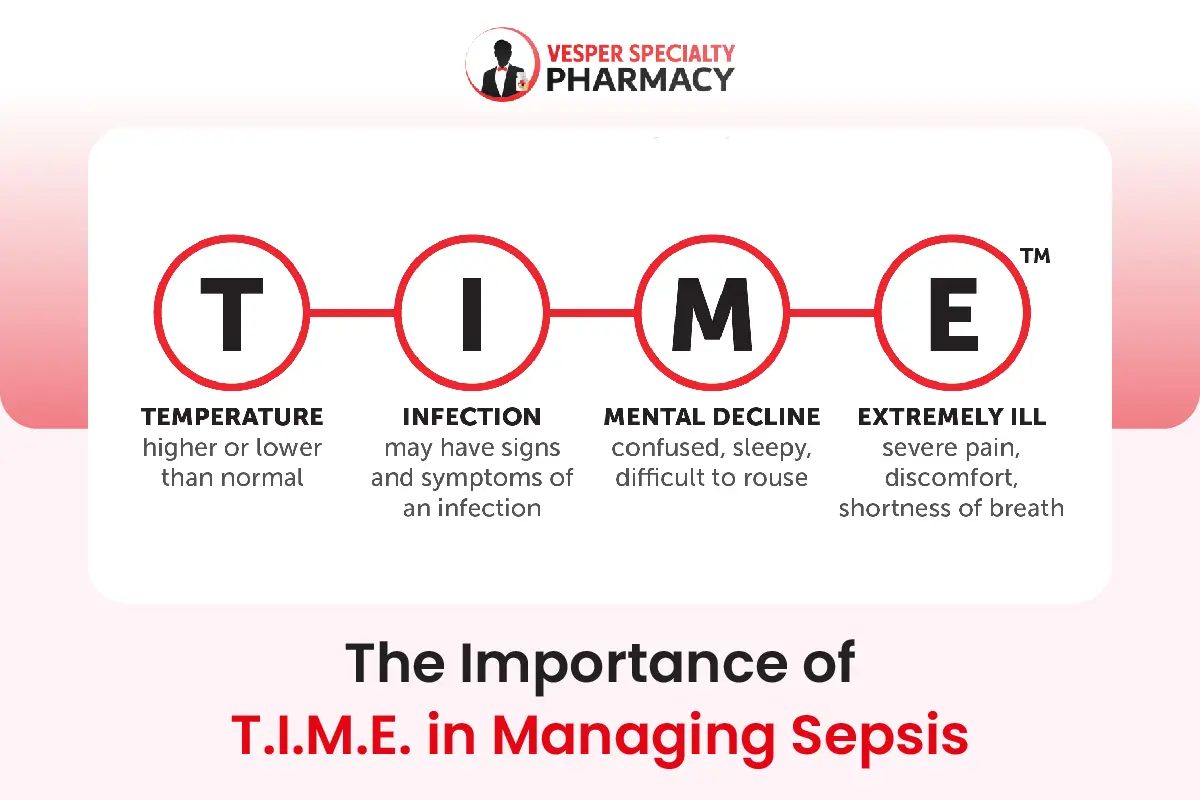Introduction
Beta-blockers, a class of medications widely used in modern medicine, play a crucial role in managing various medical conditions. Whether you have high blood pressure, heart problems, anxiety, or even migraines, you may have encountered these drugs.
In this comprehensive guide, we’ll explore what they are, how they work, their uses, potential side effects, and much more. By the end of this blog post, you’ll have a deeper understanding of these medications and how they can impact your health.
What Are Beta Blockers?
Definition and Mechanism
Beta-blockers, also known as beta-adrenergic blocking agents. This is a class of drugs that target specific receptors in the body known as beta-adrenergic receptors. These receptors are found on the surface of cells in various tissues, including the heart, blood vessels, and lungs.
Beta-blockers work by binding to these receptors and blocking the effects of adrenaline (epinephrine) and other stress hormones.
Historical Context
The history of beta blockers is fascinating. They were first discovered in the mid-20th century by Sir James Black, who was awarded the Nobel Prize in Physiology or Medicine for his groundbreaking work. Black’s research laid the foundation for the development of beta blockers, which have since become a cornerstone of cardiovascular medicine.
Common Uses of Beta Blockers
Beta-blockers have a wide range of medical applications. Let’s explore some of the most common conditions and situations where these medications are prescribed:
Hypertension (High Blood Pressure)
High blood pressure is a prevalent health issue, and beta blockers are often used to lower blood pressure by reducing the force of the heart’s contractions and relaxing blood vessels. This, in turn, helps decrease the workload on the heart.
Heart Conditions
Beta-blockers are a valuable tool in managing various heart conditions, including:
Angina (Chest Pain)
Angina is chest pain caused by reduced blood flow to the heart muscle. Beta-blockers can alleviate angina by reducing the heart’s demand for oxygen and improving blood flow to the heart.
Arrhythmias (Irregular Heartbeat)
Beta-blockers can help stabilize irregular heart rhythms by blocking the excessive impulses that lead to arrhythmias.
Heart Failure
In heart failure, the heart’s ability to pump blood efficiently is compromised. Beta-blockers can improve heart function and overall prognosis in some heart failure patients.
Migraine Prevention
For individuals who suffer from frequent migraines, certain beta-blockers, like propranolol, have been found to reduce the frequency and severity of migraine attacks.
Anxiety and Performance Anxiety
Beta-blockers are sometimes prescribed for their anxiolytic (anxiety-reducing) effects. They can help control the physical symptoms of anxiety, such as rapid heartbeat and trembling, making them particularly useful for individuals dealing with performance anxiety in situations like public speaking or stage performance.
Types of Beta Blockers
Not all beta blockers are the same. There are different classes of these medications, each with its unique properties. Let’s explore the main categories:
Non-Selective Beta Blockers
Non-selective beta blockers, like propranolol and nadolol, block both beta-1 and beta-2 receptors. This means they affect the heart and blood vessels as well as other tissues like the lungs.
Selective Beta-1 Blockers
Selective beta-1 blockers, such as metoprolol and atenolol, primarily target beta-1 receptors found in the heart. They have a more specific impact on heart rate and contractility.
Each type of beta blocker is chosen based on the patient’s medical condition and individual needs.
Side Effects and Precautions
While beta-blockers are effective in managing various conditions, they are not without potential side effects. Here’s a closer look at some of the side effects you should be aware of:
Fatigue and Lethargy
One of the most common side effects of beta blockers is fatigue. These medications can reduce energy levels and make you feel tired or lethargic.
Cold Extremities
Beta-blockers may cause reduced blood flow to the extremities, leading to cold hands and feet. Some individuals may find this side effect uncomfortable.
Bradycardia (Slow Heart Rate)
Since beta blockers reduce the heart’s rate and force of contraction, they can sometimes lead to bradycardia, which is an abnormally slow heart rate. This can be a concern for individuals with preexisting heart conditions.
Hypotension (Low Blood Pressure)
Beta-blockers can cause a drop in blood pressure, which may result in dizziness or fainting, especially when standing up quickly.
Depression or Mood Changes
In some cases, beta blockers can lead to mood changes or even depression. If you experience these symptoms, it’s important to discuss them with your healthcare provider.
Gastrointestinal Issues
Digestive problems like nausea, diarrhea, or constipation can occur as side effects of beta blockers.
Worsening of Breathing Issues
Non-selective beta blockers can worsen respiratory conditions like asthma or chronic obstructive pulmonary disease (COPD) due to their effect on beta-2 receptors in the lungs.
Sleep Disturbances
Some individuals may experience sleep disturbances, including vivid dreams or nightmares when taking beta blockers.
Interactions with Other Medications and Substances
It’s essential to be aware of potential interactions between beta blockers and other medications or substances you may be taking. Here are some key points to consider:
Other Prescription Medications
Certain medications, such as calcium channel blockers and certain antiarrhythmic drugs, can interact with beta-blockers. Your healthcare provider will carefully consider these interactions when prescribing medications.
Over-the-Counter Drugs
Even non-prescription medications, including cold and allergy remedies, can interact with beta-blockers. Always inform your healthcare provider about all medications you’re taking, including over-the-counter products.
Alcohol
Consuming alcohol while taking beta blockers can intensify the medications’ side effects, such as dizziness and low blood pressure. It’s advisable to limit alcohol consumption and discuss it with your healthcare provider.
Beta Blockers and Hypoglycemia
One crucial aspect of beta blockers that deserves special attention is their relationship with hypoglycemia, or low blood sugar levels. Let’s dive deeper into this topic:
The Connection Between Beta Blockers and Hypoglycemia
Hypoglycemia occurs when blood sugar levels drop significantly below the normal range. One of the key functions of adrenaline, which is blocked by beta blockers, is to raise blood sugar levels in response to low blood sugar.
How Beta Blockers Mask Hypoglycemia Symptoms
While beta-blockers are effective in reducing the symptoms of anxiety and preventing certain heart-related conditions, they can also mask some of the early signs of hypoglycemia. These include:
- Trembling or Shakiness: Beta blockers can suppress the physical symptoms of anxiety, which are similar to the physical symptoms of hypoglycemia.
- Rapid Heartbeat: Since beta blockers reduce heart rate, they can hide the increased heart rate that typically accompanies hypoglycemia.
- Sweating: Excessive sweating, a common symptom of hypoglycemia, may not be as noticeable while taking beta blockers.
- Nervousness and Anxiety: Beta blockers can reduce feelings of nervousness, making it less likely for individuals to recognize hypoglycemia-related anxiety.
- Hunger: Hypoglycemia often triggers intense hunger, but this symptom may be less pronounced when beta-blockers are in use.
Recommendations for Individuals with Diabetes on Beta Blockers
If you have diabetes and are taking beta blockers, it’s essential to work closely with your healthcare provider to monitor your blood sugar levels effectively. Some recommendations include:
- Frequent Monitoring: Check your blood sugar levels regularly, especially before and after meals, and during activities that may affect your blood sugar.
- Awareness of Symptoms: Be vigilant about any unusual symptoms that could be related to hypoglycemia, even if they seem less pronounced due to beta blockers.
- Consultation with Healthcare Provider: Discuss any concerns about the impact of beta blockers on your diabetes management with your healthcare provider. They may adjust your treatment plan or prescribe alternative medications if necessary.
Remember that managing diabetes while taking beta blockers requires careful attention, and open communication with your healthcare team is essential.
Special Considerations
Pregnancy and Breastfeeding
For pregnant individuals or those who are breastfeeding, the use of beta-blockers should be approached with caution. While some beta blockers are considered safer than others during pregnancy, it’s essential to consult with a healthcare provider to weigh the benefits and potential risks.
Pediatric Patients
The use of beta blockers in children and adolescents is typically reserved for specific medical conditions, such as congenital heart defects or arrhythmias. Dosing and monitoring in pediatric patients require specialized care.
Geriatric Patients
Older adults may be more susceptible to certain side effects of beta-blockers, such as low blood pressure and dizziness. Careful dosing and monitoring are crucial to ensure the safety and efficacy of treatment in this population.
How to Take Beta Blockers Safely
Taking beta blockers safely requires a collaborative effort between you and your healthcare provider. Here are some tips and guidelines to help you navigate your treatment effectively:
- Follow Your Prescribed Dosage: Take the medication exactly as directed by your healthcare provider. Do not alter your dose or stop taking beta blockers without consulting them first.
- Regular Follow-up Appointments: Attend scheduled follow-up appointments with your healthcare provider to monitor your progress and adjust your treatment plan as needed.
- Monitor Blood Pressure: If you’re taking beta blockers for hypertension, regularly check your blood pressure at home and keep a record to share with your healthcare provider.
- Keep an Updated Medication List: Maintain an up-to-date list of all the medications, including beta blockers, supplements, and over-the-counter drugs you are taking. Share this list with all your healthcare providers to prevent potential interactions.
- Be Mindful of Side Effects: Pay attention to any side effects or changes in your symptoms and report them to your healthcare provider promptly.
- Healthy Lifestyle Choices: Continue to pursue a healthy lifestyle, including a balanced diet, regular exercise, and stress management, in consultation with your healthcare provider.
Conclusion
In conclusion, beta-blockers are a diverse class of medications that have a significant impact on various medical conditions, from hypertension to anxiety. While they can be highly effective in managing these conditions, they also come with potential side effects and considerations, including their interaction with hypoglycemia in individuals with diabetes.
If you are prescribed beta blockers or are considering them as part of your treatment plan, remember that open communication with your healthcare provider is key. Your healthcare team can guide you on the best approach to take beta blockers safely and effectively, ensuring that they contribute positively to your overall health and well-being.
By understanding the uses, side effects, and precautions associated with beta-blockers, you can make informed decisions about your healthcare and work towards achieving the best possible outcome for your specific medical needs.















